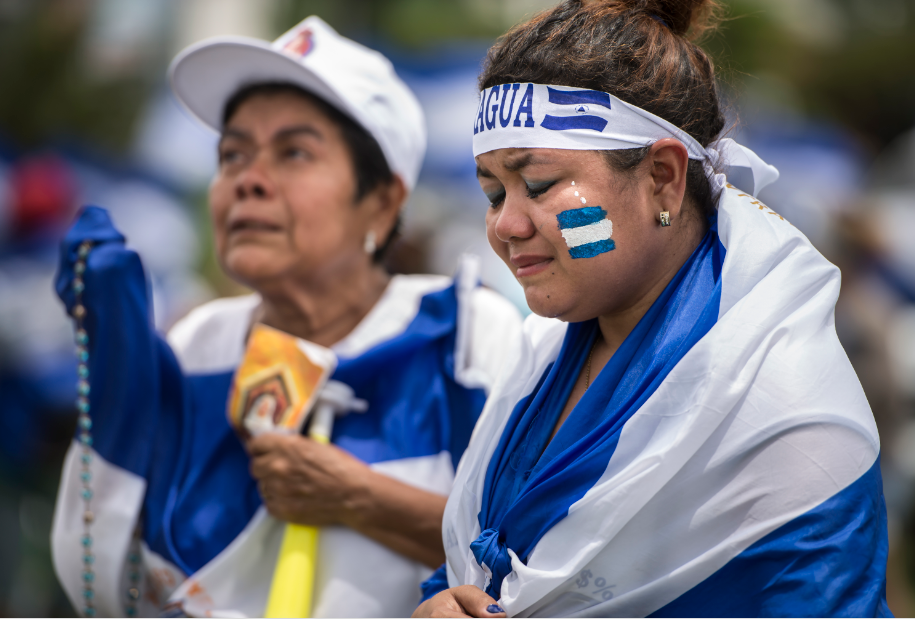PRONOUNCEMENT: We embrace the attempts to resume dialogue in Nicaragua, though with guarantees that human rights will be respected
Washington, DC, February 18, 2018 – Last Saturday, the government of Nicaragua met with businesspersons from national banking institutions and agroindustry, with the following individuals serving as witnesses: Cardinal Leopoldo […]

Washington, DC, February 18, 2018 – Last Saturday, the government of Nicaragua met with businesspersons from national banking institutions and agroindustry, with the following individuals serving as witnesses: Cardinal Leopoldo Brenes, Archbishop of Managua, and Waldemar Stanislaw Sommertag, Apostolic Nuncio. As reported by the government itself, said meeting confirmed “the need to reach an understanding, in order to commence negotiation, through an inclusive, serious, and frank encounter.” The businesspersons, for their part, called on all sectors of Nicaraguan society to decisively support possible new negotiations with the government.
Between May and June of last year, the Nicaraguan government initiated a national dialogue, with the Episcopal Conference of Nicaragua serving as the mediator and the Alianza Cívica por la Justicia y la Democracia [Civic Alliance for Justice and Democracy] as a counterpart. Nonetheless, it was canceled due to the government’s refusal to cease the repression against the Nicaraguan people.
The International Institute on Race, Equality, and Human Rights (Race & Equality) believes it is essential to resume the national dialogue between the government of Nicaragua and broad sectors of civil society in order to find a solution to the profound ongoing human rights crisis that in many respects has become more acute after 10 months.
Since April 18, 2018, the repression of antigovernment protests has resulted in at least 325 people killed, more than 2,000 injured, around 50,000 people compelled to flee the country as refugees, and more than 700 men and women currently imprisoned for calling for justice for the victims of the repression and respect for democracy.
In recent months, the authorities have aimed their repressive tactics at human rights defenders, women, journalists, independent news media, and civil society organizations in order to dismantle all spaces for criticism.
In light of these circumstances, Race & Equality believes it is critical, in order to restart the national dialogue, for the Nicaraguan government to send clear signals of complying with its national and international human rights commitments, among which we highlight the following:
- Immediately cease the repression and arbitrary detentions of the Nicaraguan populace.
- Nullify the trials of and immediately release all political prisoners.
- Authorize the return to the country of the Monitoring Mechanism for Nicaragua (MESENI) of the Inter-American Commission on Human Rights (IACHR), as well as the mission of the Office of the United Nations High Commissioner for Human Rights (UNHCHR), which were expelled from the country last year.
We have observed with concern how the apprehension of citizens has continued in various part of the country and that the judicial machinery does not stop imposing hundreds of years of prison, failing to respect the guarantees of due process. Neither of these behaviors nourish in any manner the fostering of a favorable environment for dialogue.
Race & Equality strongly believes that an inclusive dialogue is the only solution to the Nicaraguan crisis: a dialogue that nourishes the respect for human rights, truth, justice, and reparations for the victims.
*Photo of Oscar Navarrete taken by La Prensa newspaper.

